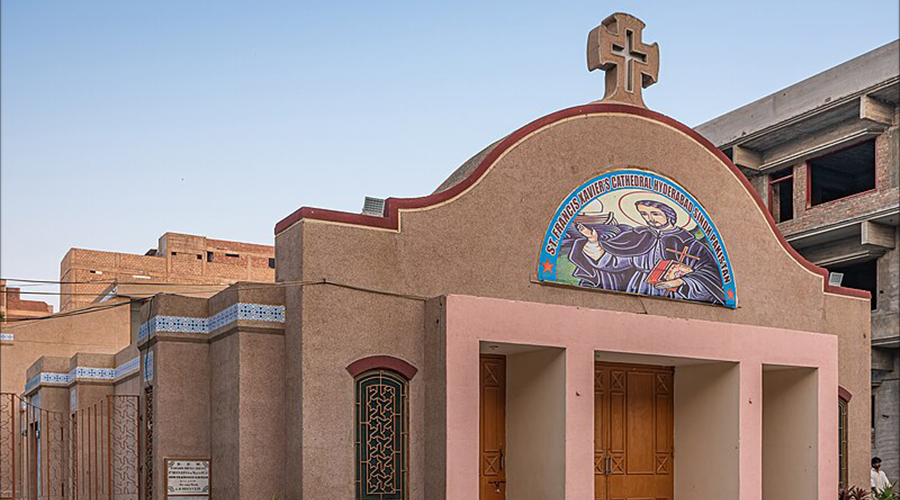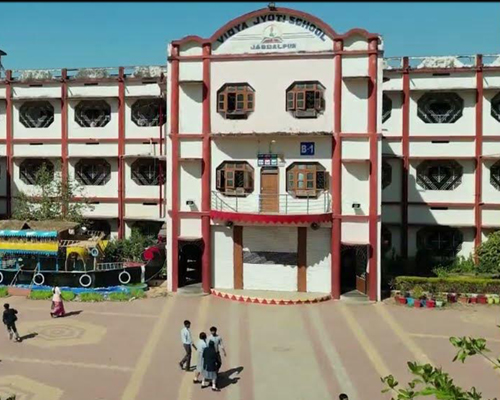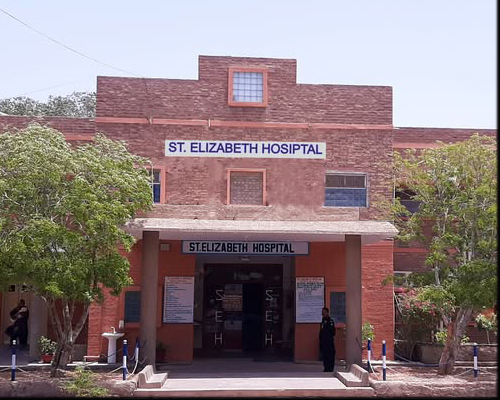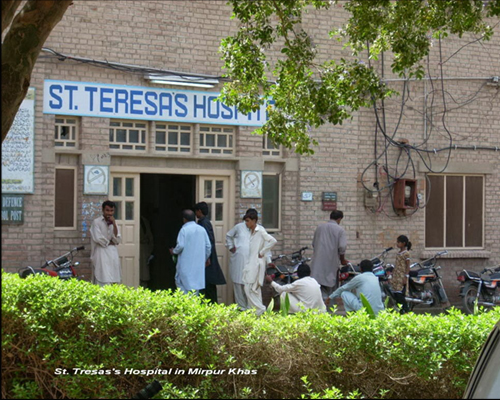DIOCESE OF HYADRABAD

The Diocese of Hyderabad was created by the Bulla "Eius in Terris", dated 28 April 1958, and officially erected on 23 August 1958, the diocese was split off from the Archdiocese of Karachi.The diocese comprises parts of the Hyderabad, Larkana and Sukkur Divisions. In the Hyderabad Division: the Districts of Hyderabad, Dadu, Jamshoro, Matiari, Tando Allahyar, Tando Muhammad Khan, Badin, Sanghar, Mirpur Khas, Tharparkar, Thatta, Umerkot and Sujawal. In the Larkana Division: the Districts of Jacobabad, Kashmore, Larkana, Qambar Shahdadkot and Shikarpur. In the Sukkur Division: the Districts of Sukkur, Khairpur, Ghotki, Shaheed Benazir Abad (formerly Nawabshah) and Naushahro Feroze. The main church is St. Francis Xavier Cathedral, Hyderabad.The Medical Mission Sisters in Hyderabad diocese, based at St. Teresa's Hospital in Mirpur Khas, have been training midwives since 1971 and implement public health programs in poor villages whose people cannot come to the hospital.The Catholic Diocese of Hyderabad has the biggest tribal apostolate in the Country In 2018 the Diocese welcomed the first nun of the Kacchi Kohli tribe, after 70 years of mission among the tribal peoples in Sindh. Sister Anita Maryam Mansingh, of the Congregation of the Presentation of the Blessed Virgin Mary (PBVM), took her perpetual vows in Hyderabad in May 2018.he diocese is also active in providing education. The Catholic Board of Education, Hyderabad (CBE HYD) regulates the 17 primary schools, 4 elementary schools and 9 high schools throughout the diocese. The diocese also runs 6 hostels and boarding schools, particularly catering for the education of the tribal children.The Roman Catholic Diocese of Hyderabad in Pakistan, established in 1958, is a diocese within the Archdiocese of Karachi, encompassing parts of the Hyderabad, Larkana, and Sukkur Divisions, with St. Francis Xavier Cathedral as its main church.
There are 3 Major Catholic Mission sites in Diocese of Hyadrabad.

The "Jyoti Educational and Cultural Catholic "Education" Centre" is likely a Catholic educational institution, possibly a school or college, within the Catholic Church's educational network in Pakistan, which is overseen by the Catholic Board of Education. he late Bishop John Joseph of Faisalabad and the late Bishop Patras Yusaf of Multan.This indicates that the center aims to provide both academic and cultural enrichment. This signifies that the institution is part of the Roman Catholic Church's educational system in Pakistan.This phrase emphasizes the institution's primary function as a place for learning and education. The Catholic Church in Pakistan has a dedicated board responsible for overseeing its educational institutions, including schools, colleges, and technical institutes.

It serves the people of Hyderabad and the lower areas of Sindh province. Not only is it a hospital but a facility for training nurses and midwives to guarantee the future for Pakistani women and babies. St Elizabeth's Hospital was established in 1958 and is a non-profit institution. It is owned by the Roman Catholic Diocese of Hyderabad and is run on its behalf by the Medical Board of the Diocese. Since 1975 it has been staffed by Pakistani personnel.St. Elizabeth Hospital is the sole medical provider for 12,000 people in nearby villages. Free medication is provided. The major health issues that need attention are: a. Provision of ante-natal, natal and post- natal care b. Infantile anaemia c. General medical care for all sexes and age, including diagnosis, treatment, and provision of medicines d.

St Teresa's Hospital in Mirpurkhas, in the province of Sindh, Pakistan was established in 1947 by Bishop Alcuin van Miltenburg, a Dutch Franciscan missionary, in collaboration with H.M.A. Drago, a Catholic doctor.Initially established as a small clinic, the hospital expanded to a 92-bed facility in 1956.The hospital's early operations, supported by Dutch and German medical volunteers, focused particularly on addressing the needs of refugees and the local Christian community during the partition period.The Medical Mission Sisters in Hyderabad diocese, based at St.Teresa's Hospital in Mirpur Khas, have been training midwives since 1971 and implement public health programs in poor villages whose people cannot come to the hospital.